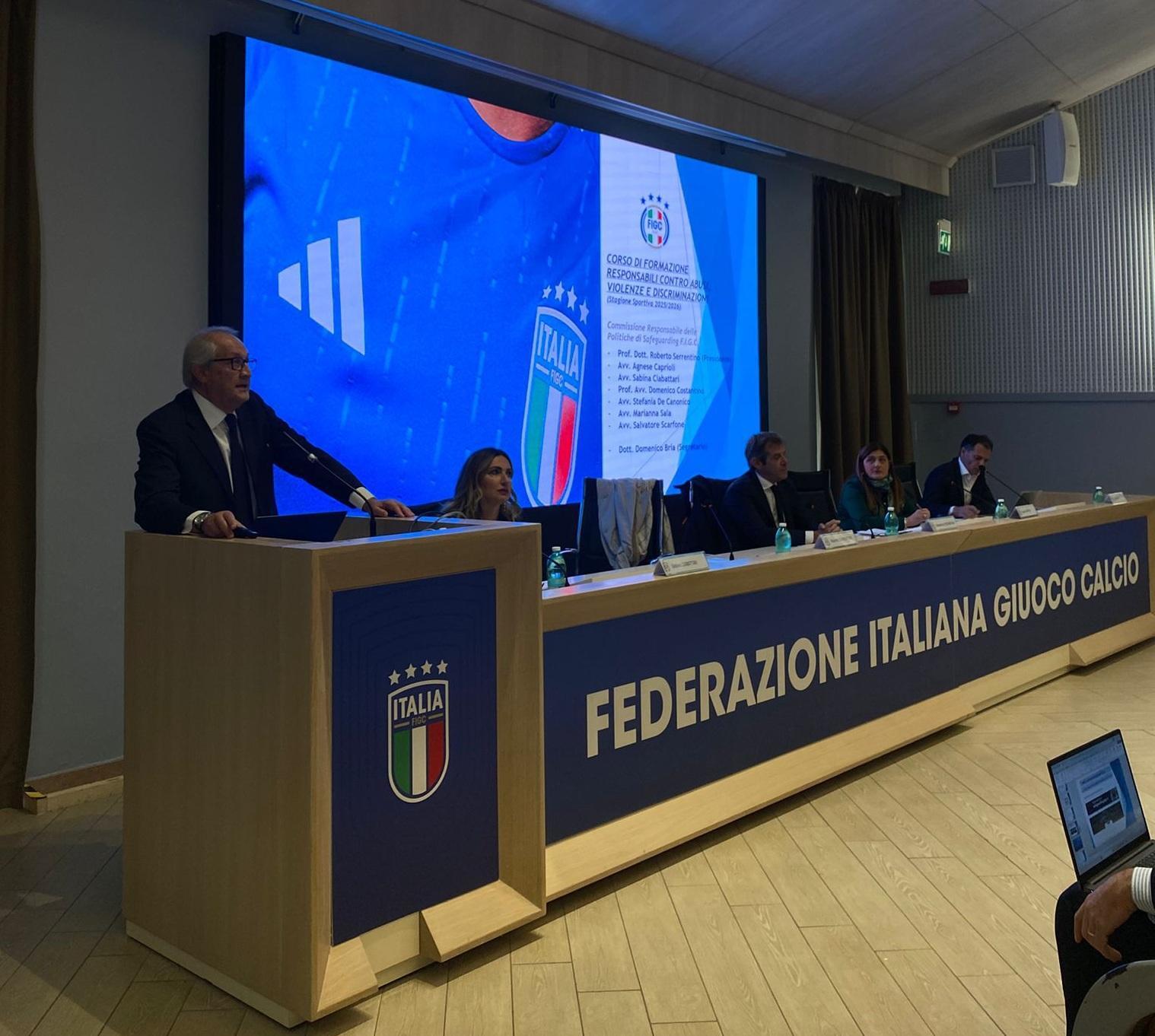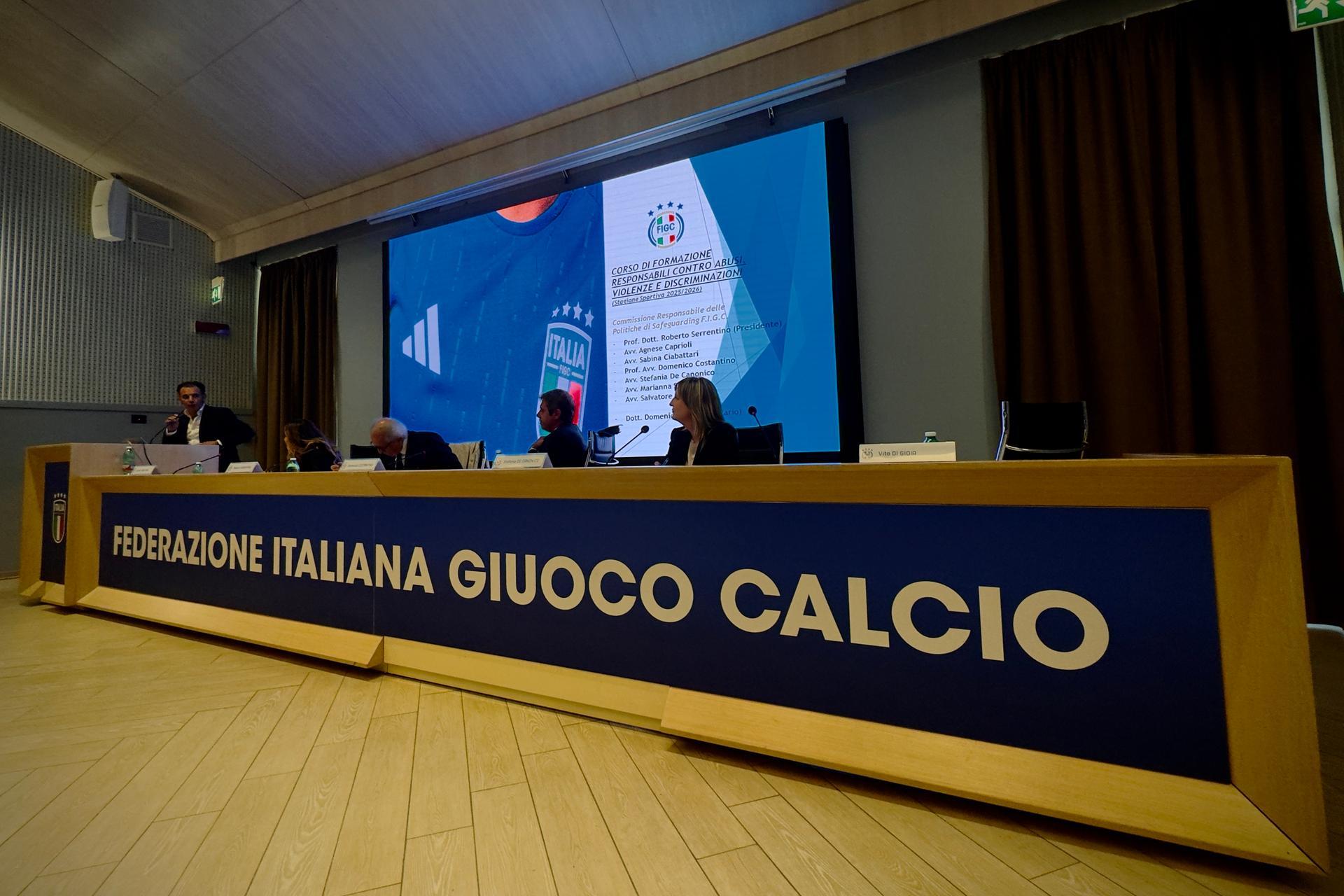PHOTO
On 15 October, a dedicated training session for Safeguarding Officers from Serie A, Serie B, Lega Pro and Serie A Women clubs – responsible for preventing abuse, violence and discrimination – took place at the Federal Technical Centre in Coverciano. The event was organised by the FIGC’s Safeguarding Policy Commission.
With representatives from nearly all professional clubs in attendance, the workshop provided an important opportunity for discussion and insight into the principles, tools and responsibilities connected to safeguarding within Italian football.


The session opened with remarks from Professor Roberto Serrentino, President of the Commission, who introduced the framework of Safeguarding, outlined the Commission’s completed initiatives, and presented its future objectives. The course, divided into morning and afternoon sessions, explored (through the contribution of all Commission members) the key applications of safeguarding regulations, the role and functions of the Safeguarding Officer, FIGC’s prevention and monitoring tools, and the disciplinary sanctions provided by the Code of Sports Justice.
With the involvement of the Youth and Schools Department, the workshop also examined the relationship between the Safeguarding Officer and the Child Protection Delegate, highlighting how close cooperation between these roles within clubs is essential for creating safe and protective environments.
The meeting concluded with an address by the Commission’s Secretary, Domenico Bria, who focused on the features of the FIGC Safeguarding Platform and the procedures for managing reports received by the Commission.
The event reaffirmed the commitment of the FIGC’s Safeguarding Policy Commission to strengthening a protection network aimed at ensuring safe and inclusive sporting environments. It represents a tangible step in an ongoing cultural shift grounded in the values of respect and protection.
